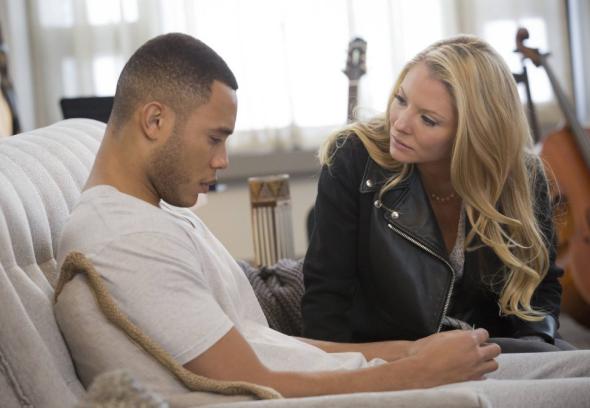
Last week on the number one new television series, Empire on Fox, they addressed character Andre Lyon’s (played by Trai Byer) mental illness. He was diagnosed with bi-polar disorder, which is a disease associated with mood swings ranging from depressive lows to manic highs. The scene was both emotional and riveting. This episode touched or hit home for many people who watched it. Just like his father’s reaction on the show, how often are these conversations ignored in Black families and communities or swept under the rug as many live in a tormented silence and others around them provide their unofficial diagnosis of “needing to pray” or “he or she will be alright” while they believe time will just make it go away? It’s not a problem to be ignored.
Mental health illness is something we should be considering, but it requires a delicate approach. Do we consider family dynamics and DNA traits before falling in love? Often times we let our hearts lead without exploring generational mental health. We ignore the signs of things like very rash mood swings, verbal and physical abuse, addictions, etc., in exchange for companionship, love and a sense of belonging to someone.
In our book, Relationship DUOvers, we devoted an entire chapter to exploring family dynamics and DNA in more detail when in the dating process. Have you considered the DNA of the person you are currently dating or married to? We can’t stress enough how important it is to know whom you’re involved with and more importantly whom you plan to start a family with. So often we have no idea the genes we may be integrating. In our book, we give an example of putting apples, oranges and peanuts in a blender and expecting it to taste like a delicious strawberry smoothie. It’s just not going to.
The goal is to begin open dialogue in a healthy environment to understand where the behavior may be coming from and if you decide to move forward in the relationship, garner support for each other as a team with a newfound realization and game plan.
Here are eight surefire ways to tackle this sensitive subject, whether you’ve just met someone or are already in a long-term relationship.
1. Share a relatable story about a friend or a family member that may suffer from mental illness. Discuss how much you believe mental health is just as important as physical and emotional health. See if this opens the line of communication.
2. Be transparent about your own personal mental health challenges if any and how you manage it. The more they know on the front end, the more they will understand when situations and conflicts arise.
3. If your mate has shared some details with you on the subject, don’t ever use words like “crazy, psycho, nuts, looney”, etc., not even casually or jokingly. These words can be offensive and may prohibit your mate from opening up to you more in the future for fear of rejection.
ADVICE: 10 Amazing Dates You Won’t Want To End
4. Once your mate opens up to you or vice versa, offer praises and words of encouragement! Be reassuring that you like/love them and you are supportive of the their fight to identify and manage their mental health.
5. Encourage medical attention and supportive therapy. If the diagnosis were diabetes, you would encourage him to take insulin right? Inspire them to establish and stay consistent with a regular regimen to continue moving forward with the proper exercise, counseling, and medication if needed.
6. If you’re dating and see signs of mental illness, don’t ignore them. So often we are blinded by sex, outward appearance, or even just wanting companionship that we willingly ignore things like random outbursts and inconsistent behavior and moods.
7. Only initiate sensitive topics when you’re both calm and never in the midst of anger or an argument. Things like putting your arm around them or sitting on their lap will reinforce your love and will create a supportive environment.
PHOTOS: The Most Shocking Celebrity Exes Ever
8. Be a part of the process. If you say you will be there or want to help, set aside some uninterrupted time to seek a professional together. After you have some dialogue, always remain part of the solution.
Although we are not medial doctors or therapists, as relationship coaches, we see the aftermath when mental health challenges arise from dysfunctional families or upbringings and how they are often major issues that create conflicts within relationships. When we couple that with the topic being taboo and not openly discussed in our communities, it makes for a chain reaction of more dysfunction and misunderstandings. We are advocates of healthy relationships and want you to be clear and more informed about the person whom you choose to share your life with. Know that every relationship has its challenges, but it helps when you create an open environment to learn and understand what those challenges are sooner rather than later!
Here’s to love!